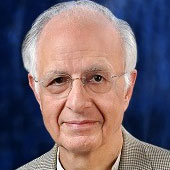The Problem With Direct Democracy: The Case of California
Direct democracy is now easier than ever. But raw public input without first improving democratic processes is dangerous.
October 21, 2017

Some people believe that technology can provide the solution for democratic decision-making. When everyone has a smart-phone, all can give their preferences on any issue with the click of a button.
Thus, they say, governments can easily determine what the people want.
Can technology Facilitate Democracy? The Case of India
Climate Change: Can Today’s Societies Make Big Choices?
However, for direct democracy to work, those called upon to vote on an issue must understand the implications of the decision proposed.
They must receive explanations of these implications in terms that they understand. And they must be willing to give their time to understand these implications — and not merely vote for what they instantly like.
What can happen otherwise can be learned from the U.S. state of California. A series of direct ballots on various issues has led to a deterioration of democracy in the state.
Each ballot question was explained in thick documents that no one had time to read. Related debates in the media also illuminated nothing more than the hate the opposing parties had for each other.
As a result, the processes of public debate tend to fail to educate the people about the issues on the ballot. Hence, all votes, even of the so-called educated elite, are largely an expression of their personal prejudices.
Technological abuses of and by society
Rapid advances in digital, computational and communication technologies are beginning to have profound impacts on democratic societies. One is intrusion into citizens’ privacy, along with the power of surveillance these technologies give to states and other actors.
Another is the concern with the right to free speech that is being misused by trolls, hate-mongers and other anti-social elements on social media to create an uncivil society. On social media, such people can ‘stuff the ballot boxes’ by using technology to multiply their votes.
Increasingly smart algorithms know ‘who’ each person is and give each person exactly what she wants. They nudge people towards advertisements of products and towards opinions and news that people ‘like’. The efficiency of social media algorithms is a boon for advertisers/sellers and for political campaigners too.
Is tech a tool or a weapon in democracies?
Undoubtedly, the efficiency of algorithms makes life easy for consumers. They need not search too far to get what they want. The problem is that while people get more and more of the ‘same’, they become more isolated from people who do not think like themselves. They no longer hear those across the walls of the boxes into which algorithms have put them.
Thus, social media is exacerbating the problems with direct polling of citizens’ views, rather than easing them. It is accelerating divisiveness in societies, just when, in an increasingly global world, we must learn to live together harmoniously.
As in the 1990s, when private corporations realized that they must fix their process designs before being able to benefit from applying new technology, so too now, the processes of democratic deliberation require more attention.

